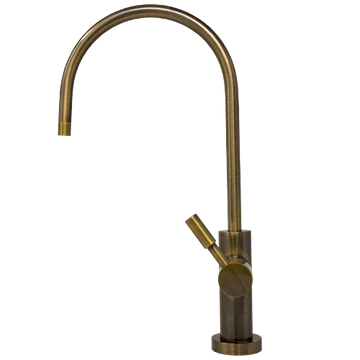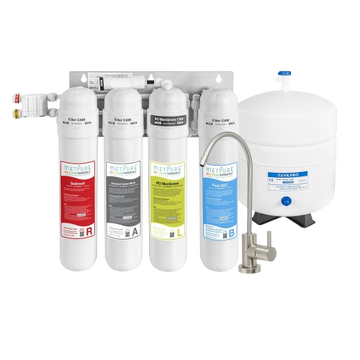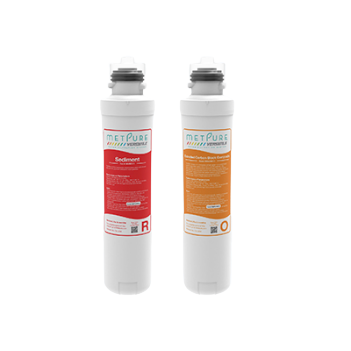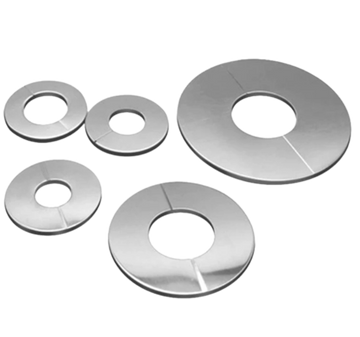Whole-house water filters work to purify all the water entering your home. They typically include a pre-filter and carbon filter to remove sediment, chemicals, and bacteria.
The first stage utilizes a Sediment Filter to remove large physical particles such as dirt, silt, and rust. The second uses a coconut shell-based Carbon Block filter to eliminate chemicals, including chlorine, herbicides, pesticides, volatile organic compounds (VOCs), and metals.
How it works
Typically, 2-stage water filters consist of a pre-filter and a carbon filter to eliminate larger contaminants such as dirt, rust, and chlorine from your home’s water supply. These filters are less expensive than 3-stage water filters and easier to maintain.
3-stage water filters offer an additional level of filtration by including UV light to kill bacteria and viruses in your home’s water supply. They are also more expensive than 2-stage systems and require more maintenance.
The final stage of a 3-stage system is a color-changing resin deionization filter to remove any remaining total dissolved solids (TDS) in membrane-filtered water. This resin changes from blue to amber as it runs out of ions, providing a visual indicator for when it is time to change the filter. This under-sink premium drinking water system reduces bad taste & odor, lead, giardia & cryptosporidium cysts, chlorine, aesthetic chlorine, particulate class 1, and lindane. Culligan’s innovative quarter-turn cartridge design makes for quick and hassle-free cartridge changes.
Benefits
A multi-stage system is much more thorough than single-stage filters, and the added filter stages allow it to eliminate a wider range of contaminants. This is because each cartridge features different filter materials, with each material specifically suited for a particular water filtration stage.
The first stage uses a sediment filter to remove large particles like sand, silt, and rust from the water supply before it goes into the reverse osmosis membrane. This helps to protect the membrane from damage and reduces the load on it to produce better-quality water.
The second stage uses a carbon block to remove chemical contaminants including chlorine, harmful organic and organochlorine substances, lead, cysts and other trace elements. This allows you to enjoy better-tasting and safer water for your family. It also helps to protect your appliances from damage caused by hard water.
Installation
A two-stage system is the most practical and affordable solution. It reduces chlorine taste and odor, lead, chemicals, metals, and other harmful contaminants while leaving beneficial minerals intact. Designed to be mounted under the sink it installs quickly and easily, no plumber required. It includes the system manifold with built-in bracket, first set of Claryum filters and a brushed nickel faucet, cartridge change indicator light, double water shut off so that the water supply is never turned off during filter changes, quick connect fittings, 1/4" tubing, and mounting hardware.
The Sediment Filter removes sediment, sand, silt, dirt, and rust from your drinking water to protect the Carbon filter. The Carbon Filter is made of Activated Carbon that effectively reduces chlorine, chloramines, and other organic compounds as well as reduces arsenic, lead, parasitic cysts, and other harmful contaminants. Filter changes are fast and easy with the unique UltraEase encased design. Filters should be replaced every 3-6 months depending on water quality and usage.
Maintenance
Water filters can be one of the most important investments you make in your home, but they do require regular maintenance to work properly. Ignoring this type of preventative maintenance can lead to poor water quality, expensive repairs, and even system failure.
Water filtration systems require periodic filter replacements as well as annual cleaning and sanitization. These steps help ensure that the filters are working to remove contaminants, maintain proper water pressure, and extend their life spans.
Filters clog over time, reducing their ability to remove impurities from the water. Changing them as the manufacturer recommends prevents this clogging, maintaining your system’s efficiency.
Other maintenance tasks include inspecting your system for leaks and damage to pipes and connections. NH Tap can perform this inspection and provide repair services when necessary. We also recommend testing your water regularly to confirm that the system is doing its job correctly. This can help you determine whether your water filtration is working or not, which helps you save money on energy bills and maintain the health of your family’s drinking water.













